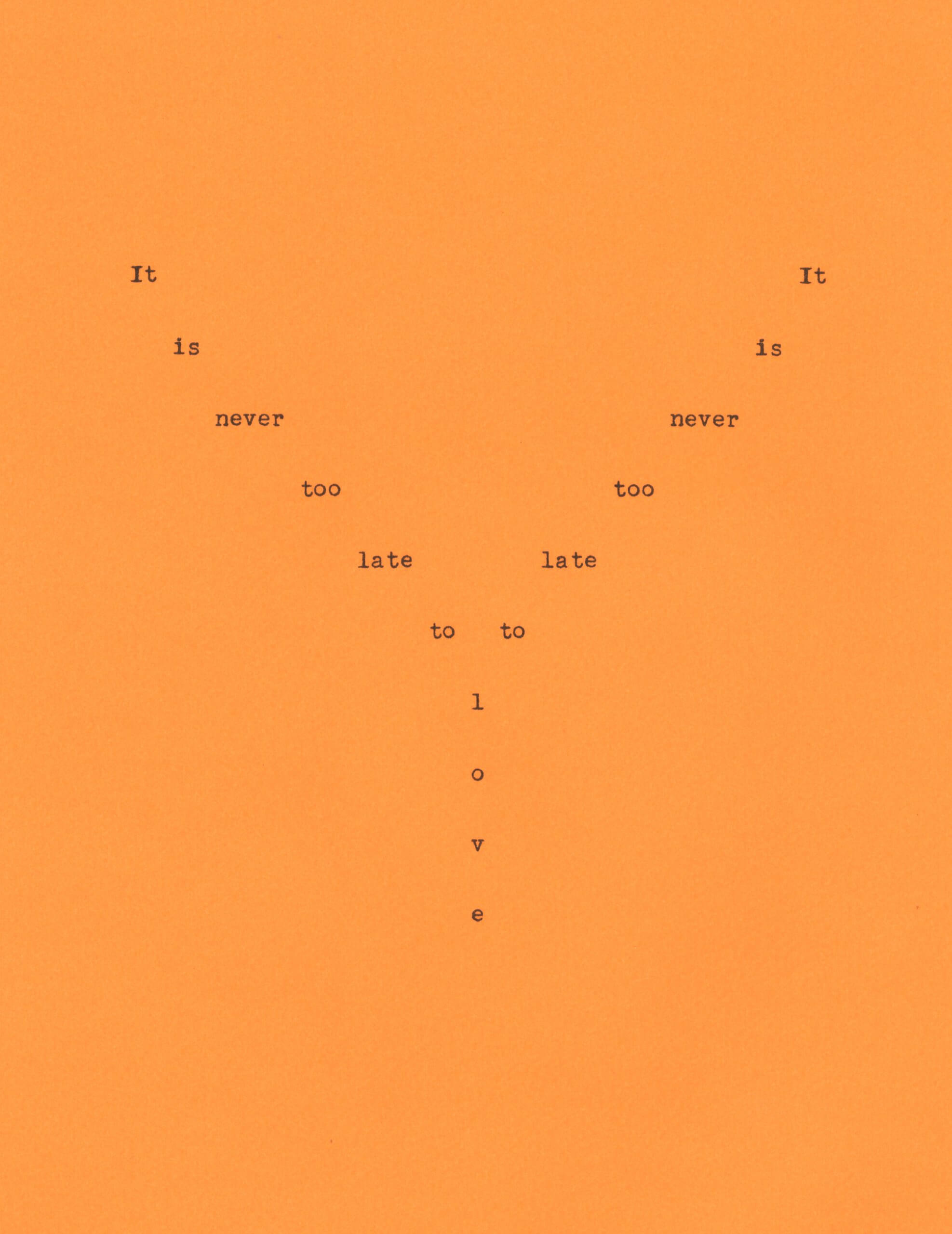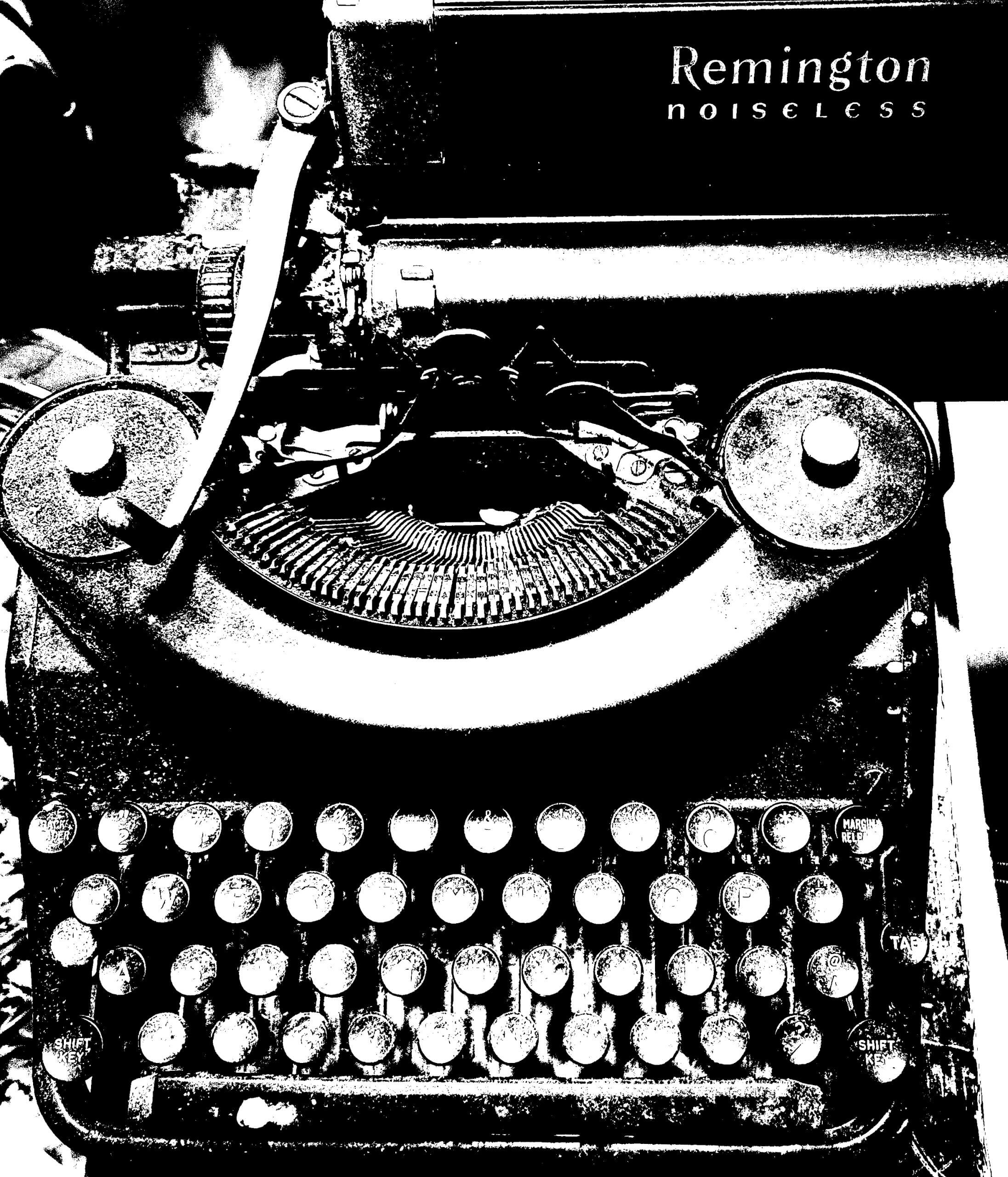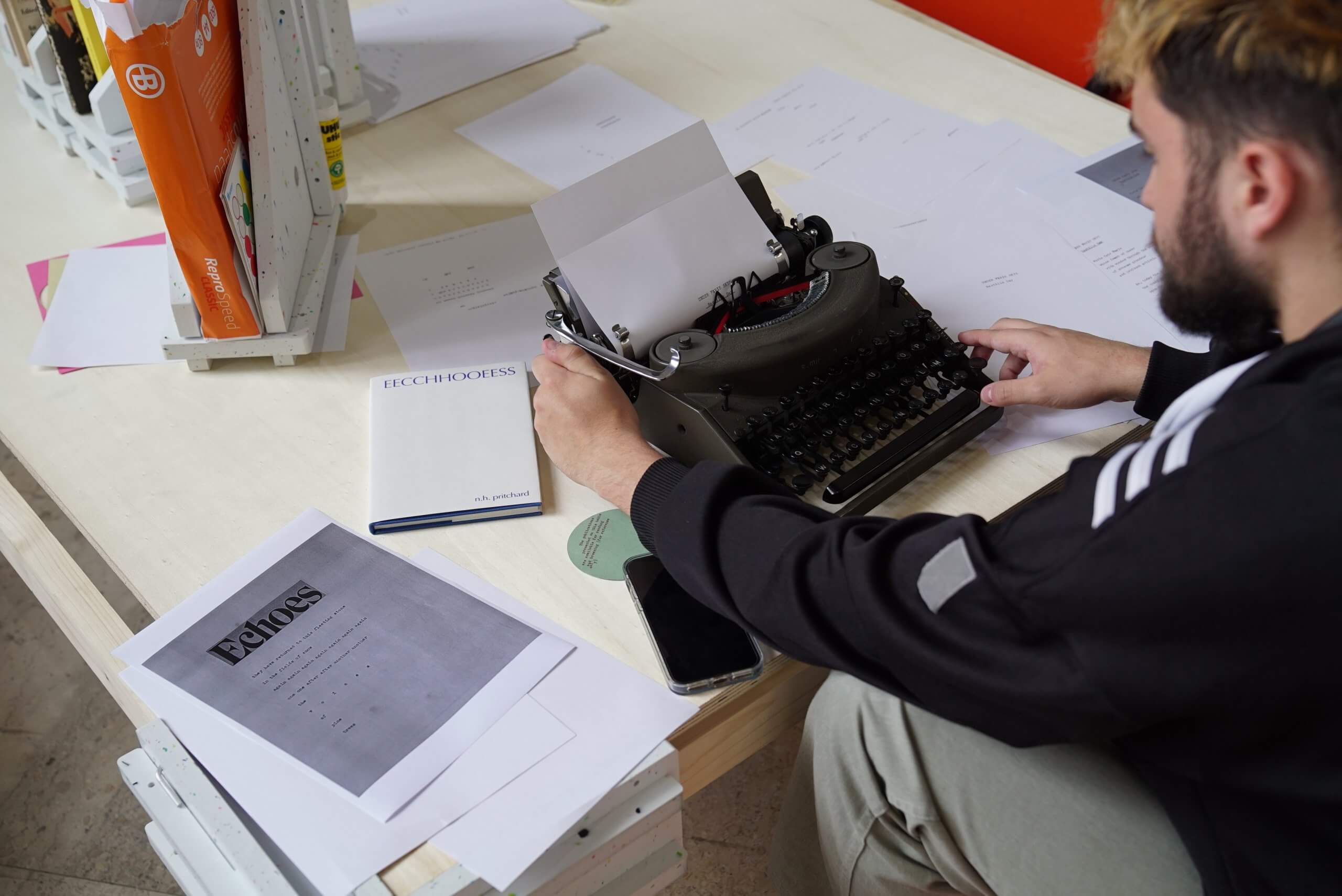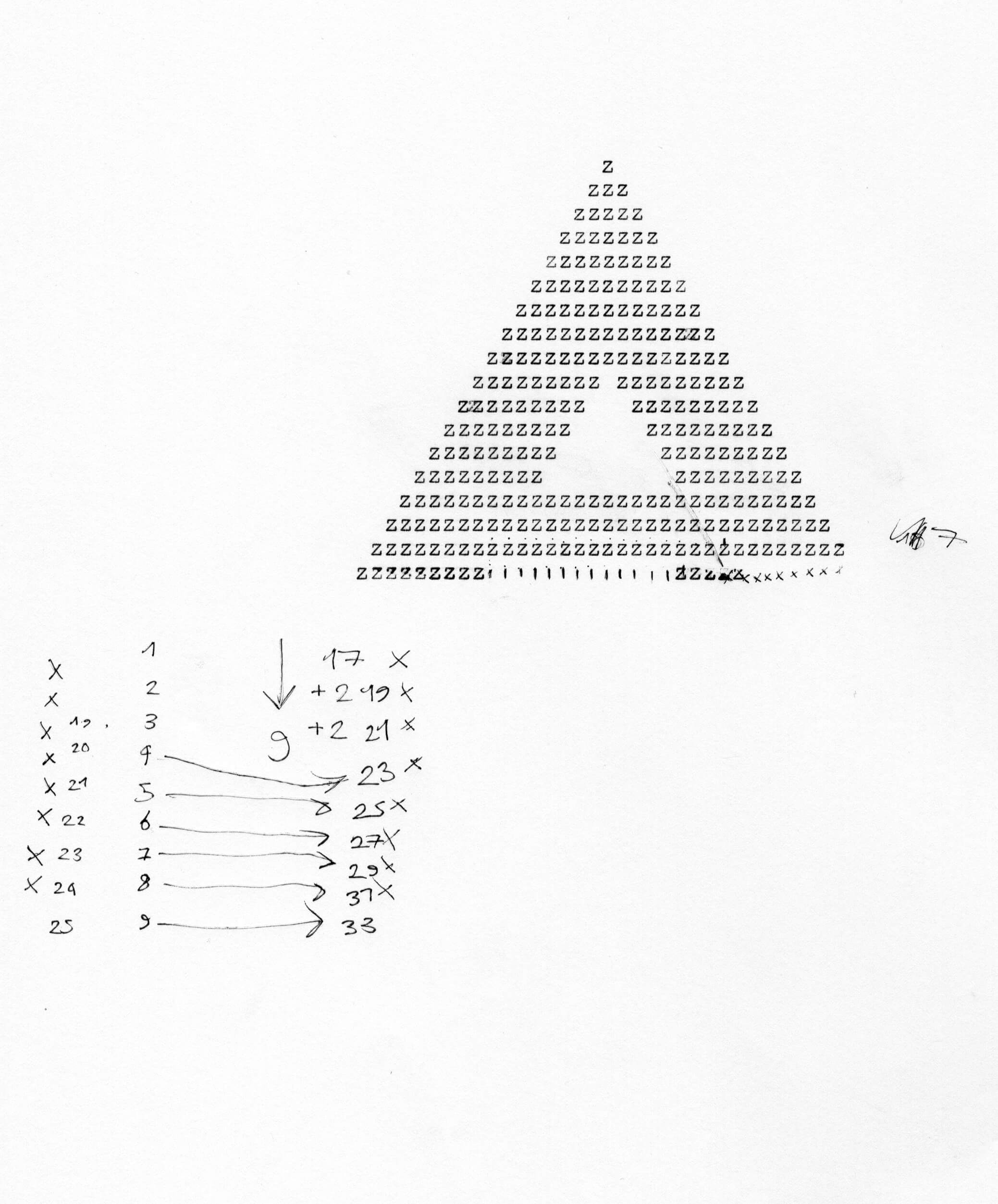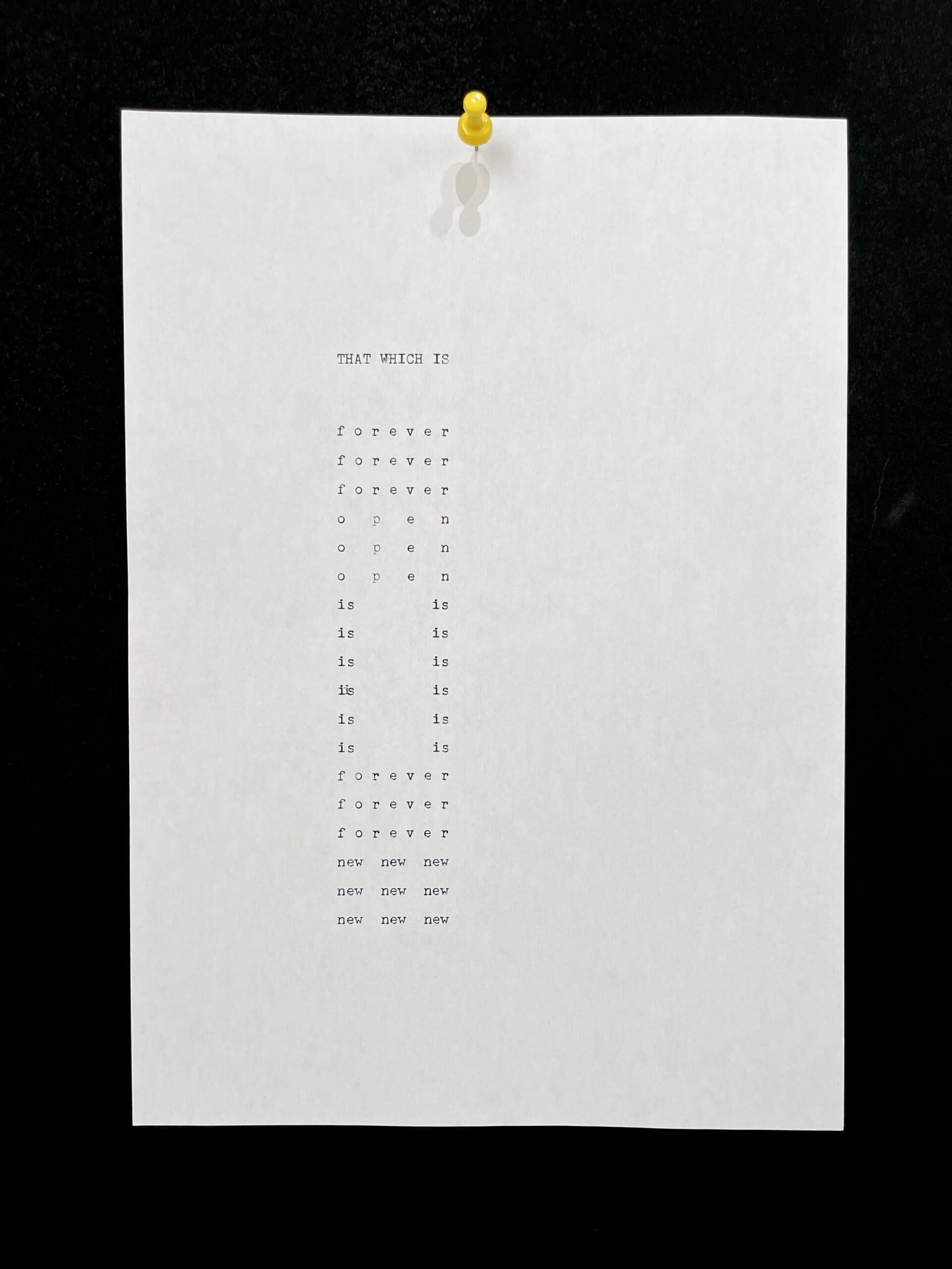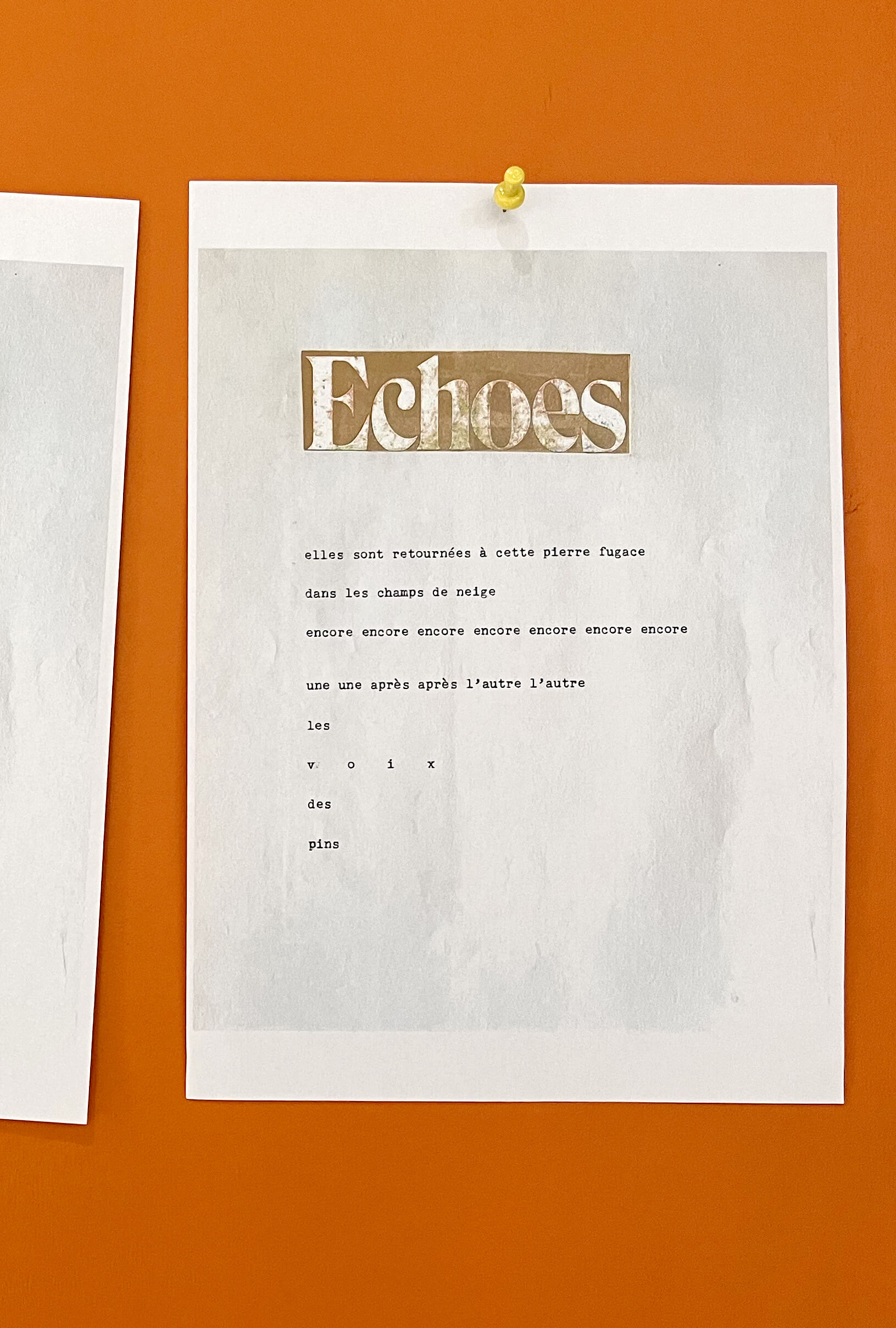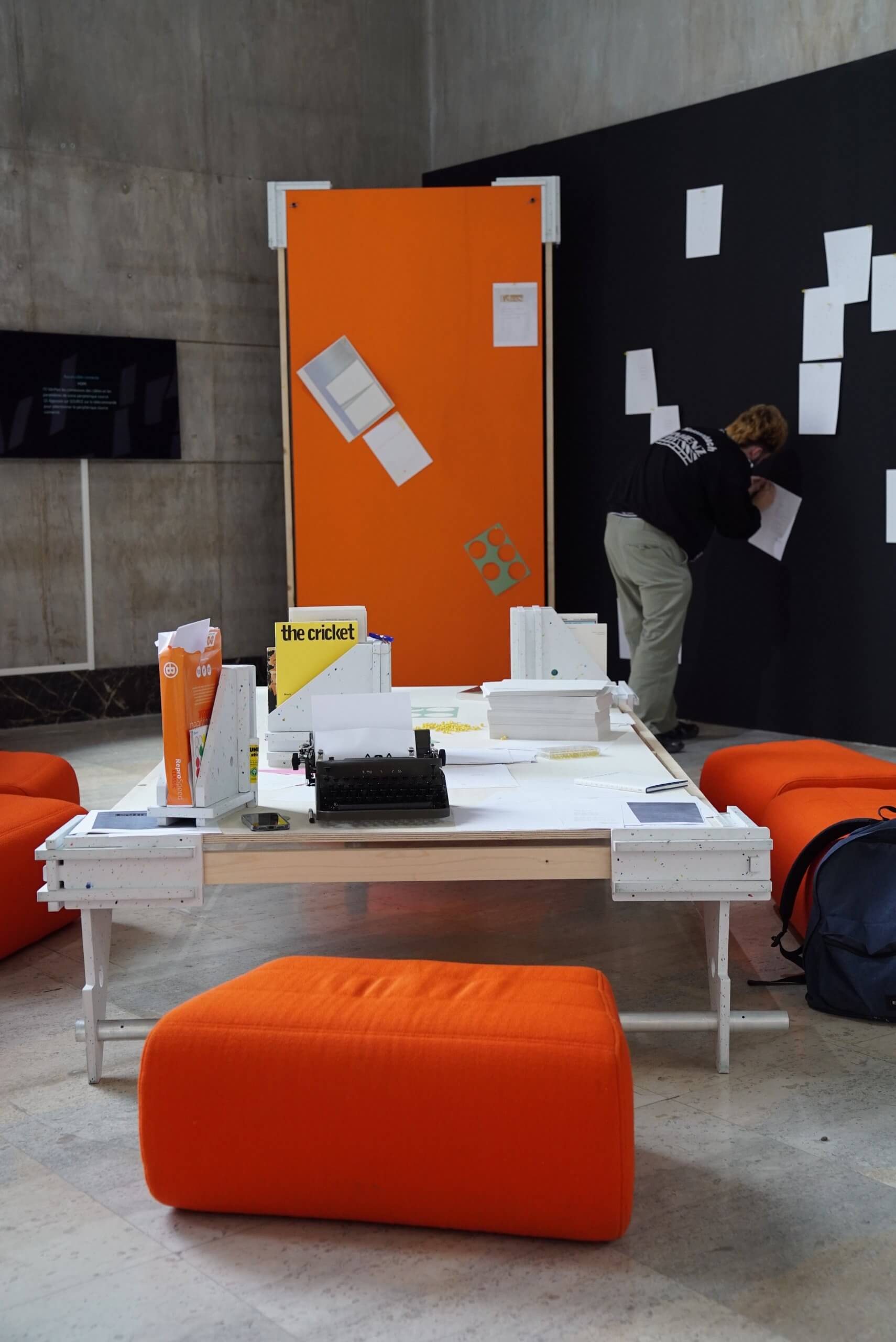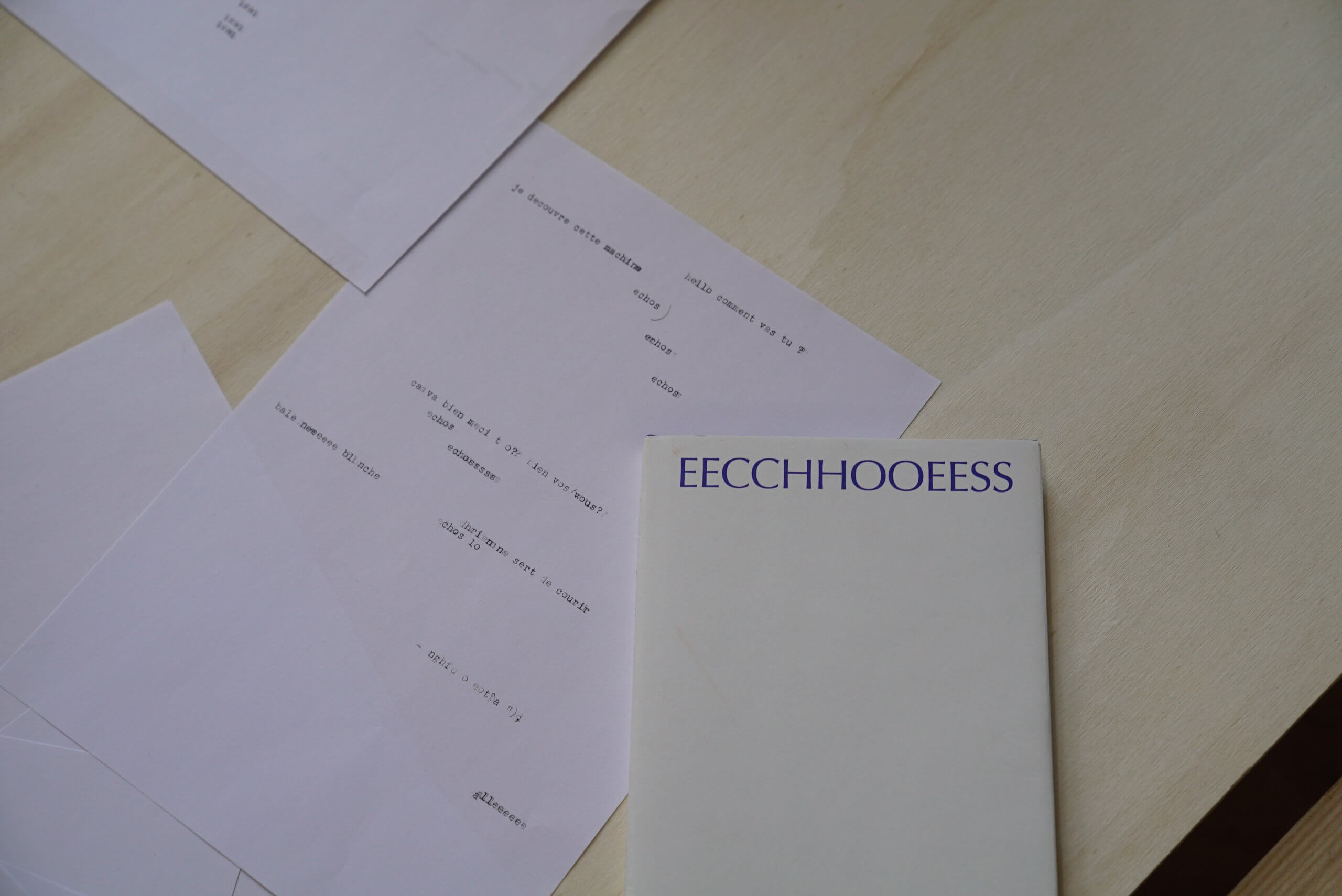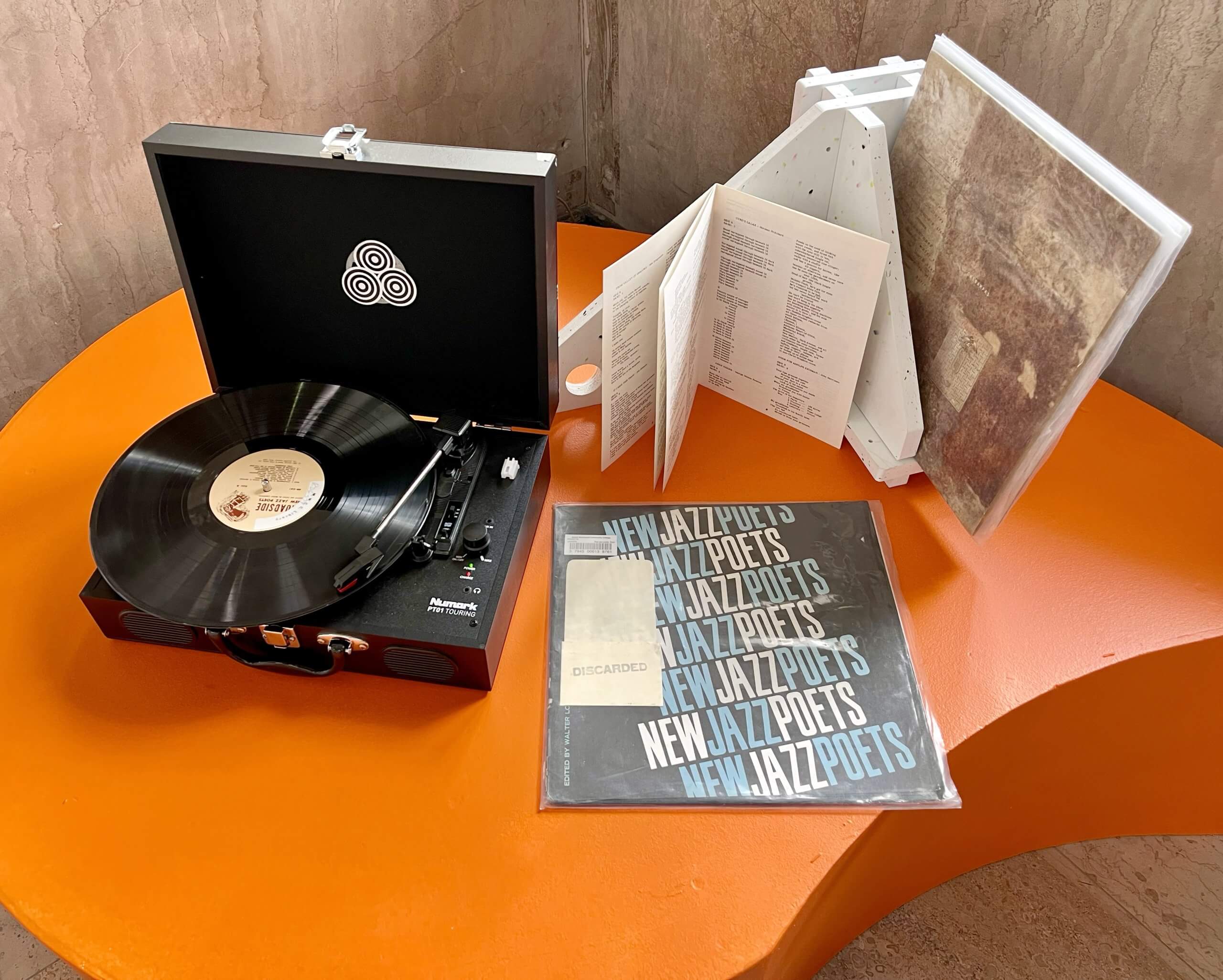SEARCH THE ENTIRE SITE
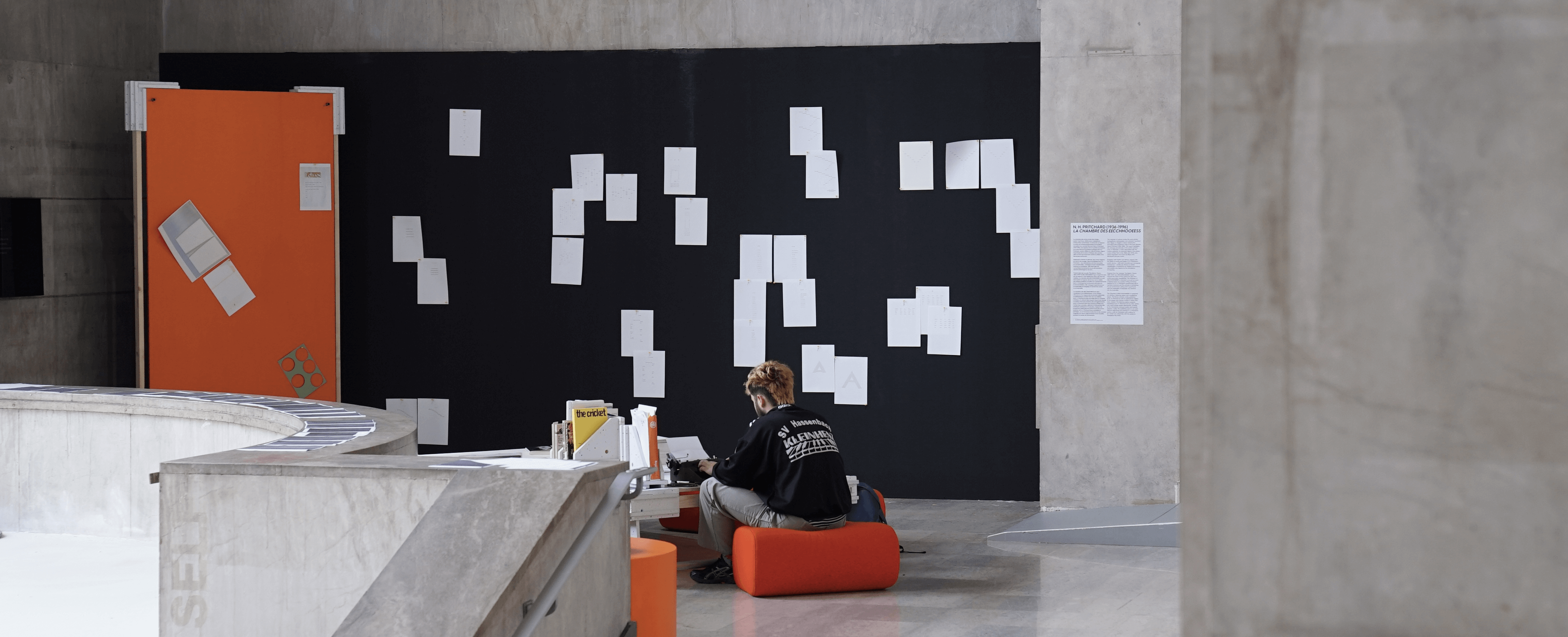
Alex Balgiu / NH Pritchard in the chamber of EECCHHOOEESS
from 05/15/2024 to 06/30/2024The chamber of echoes invites the poet-printer, bookgatherer-radiospeaker and educator-wanderer Alex Balgiu to imagine a space echoing the innovative and polyphonic work of the poet Norman Henry Pritchard (1939-1996). This space highlights the richness and diversity of the poetic practice of N. H. Pritchard, a writer associated with the Umbra collective, an important figure in the artistic scene of New York in the 1960s and 1970s who draws inspiration from both the Black Arts Movement and jazz music.
Engaging with rhythm and silence, playing with the space of words and pages, N. H. Pritchard’s poetic oeuvre —with both concrete and conceptual resonances — eludes any literary or artistic classification: it questions our reading conventions and creates new spaces for the emergence of meaning.
Drawing from the volumes The Matrix: Poems 1960-1970 and EECCHHOOEESS (which inspired the name of this space) but also from works previously unpublished, The Chamber of EECCHHOOEESS is intended to be just as much a reading space as a poetry writing workshop attentive to N. H. Pritchard’s questionings about narrative structure and the process of publishing. It is an environment uniting both experiments with the materiality of language and research into its musicality
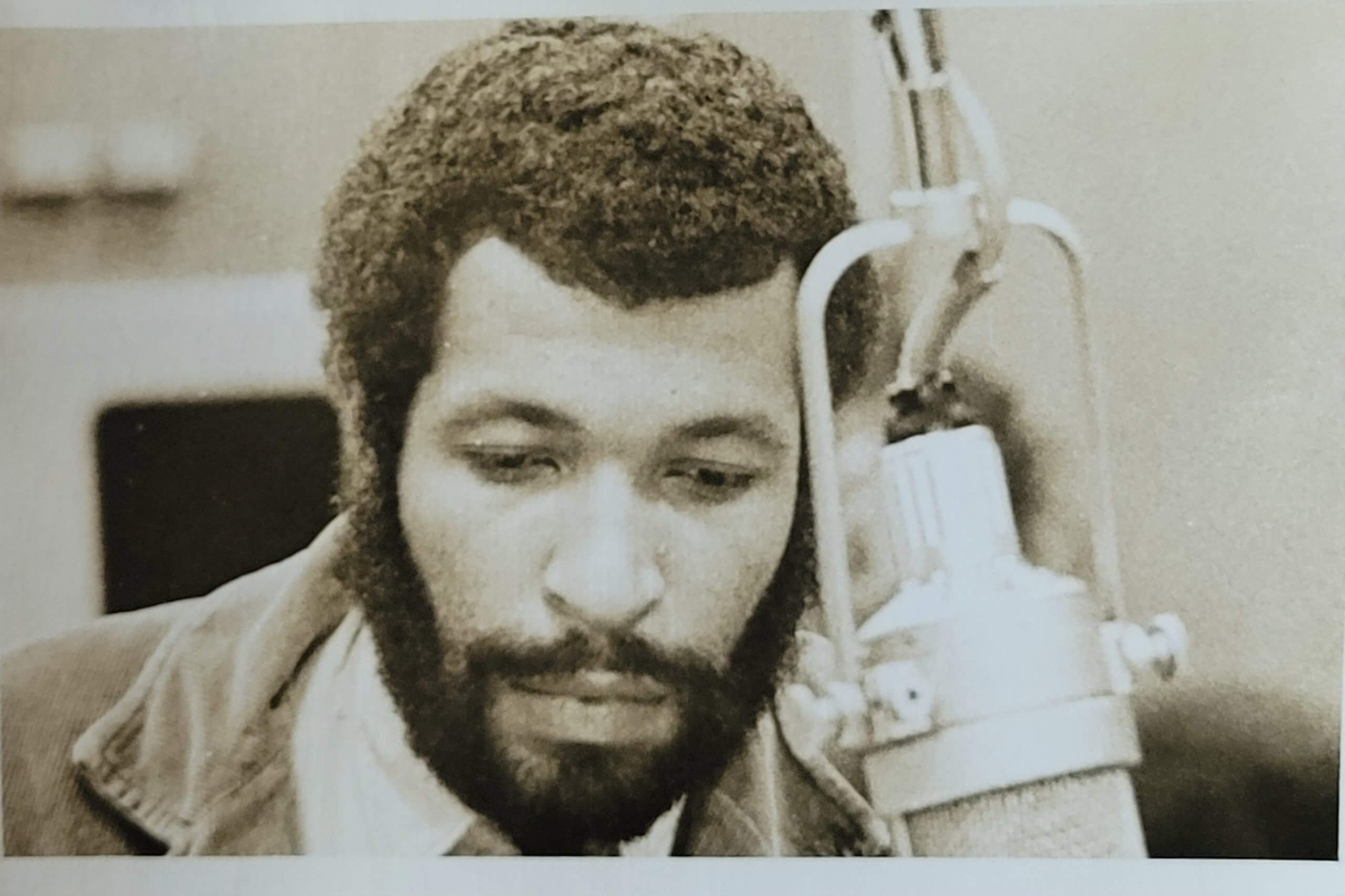
The Chamber of EECCHHOOEESS is composed of a library, a listening station and a publishing space. The library contains works published by N. H. Pritchard as well as publications related to the artistic and cultural context in which they were created. The listening station presents recordings by N. H. Pritchard and by other artists who share similar artistic approaches, working at the intersection between poetic and musical practice. Lastly, the publishing space is an open field for (re)printing and sharing N. H. Pritchard’s poetry, a site for translation and creation to be carried out collectively with the audience throughout the event.
The Chamber of Echoes
The Chamber of Echoes is a new space for programming and cultural mediation. It offers exhibitions and events of varying scales and durations in the free admission area of the Palais de Tokyo. It is designed as a flexible and responsive space, inspired by the logic of cultural rights, which aims to recognize the right of every individual or group to participate in cultural life and express their culture.
Free and open access from the Palais de Tokyo’s hall.

